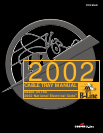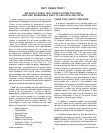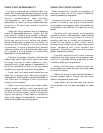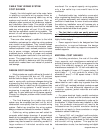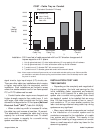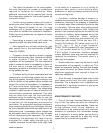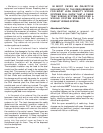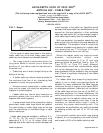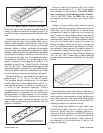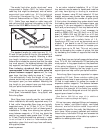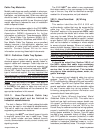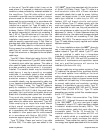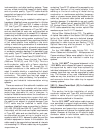
signal circuits, logic input/output (I/O) circuits, etc.
There are other cable tray installations which require
a higher cost cable than the equivalent conduit
installation. Such installations are limited to areas
where low smoke emission and/or low flame spread
ITC or PLTC cables must be used.
• Conduit banks often require more frequent and
higher strength supports than cable trays. 3 inch
and larger rigid metal conduits are the only sizes
allowed to be supported on 20 foot spans [National
Electrical Code
®
(NEC
®
) Table 344.30(B)(2)].
• When a cable tray width is increased 6 inches,
the cable tray cost increase is less than 10 percent.
This substantially increases the cable tray’s wiring
capacity for a minimal additional cost. To obtain
such an increase in capacity for a conduit wiring
system would be very costly.
INSTALLATION COST AND
TIME SAVINGS
• Depending on the complexity and magnitude of
the wiring system, the total cost savings for the
initial installation (labor, equipment and material)
may be up to 60 percent for a cable tray wiring
system over a conduit wiring system. When there
are banks of conduit to be installed that are more
than 100 feet long and consist of four or more 2
inch conduits or 12 or more smaller conduits, the
labor cost savings obtained using cable tray wiring
systems are very significant.
• Many more individual components are involved
in the installation of a conduit system and its
conductors compared to the installation of a cable
tray system and its cables. This results in the
handling and installing of large amounts of conduit
items vs. small amounts of cable tray items for the
same wiring capacity.
6
16000
14000
12000
10000
8000
6000
4000
2000
0
Total
Installed
Cost ($)
COST - Cable Tray vs. Conduit
(Equivalent Conductor Fill Areas)
Material Cost
Labor Cost @
$25/hr per NECA
labor units.
Ladder
Cable Tray
1
Solid Bottom
Cable Tray
2
EMT
3
Rigid Steel
Conduit
4
Installation: 200 linear feet of cable supported with four 90° direction changes and all
trapeze supports on 8 ft. spans.
1. Hot dip galvanized steel, 18" wide, ladder cable tray (9" rung spacing) with all hardware.
2. Hot dip galvanized steel, 18" wide, solid bottom cable tray and all hardware.
3. 7 parallel runs of 3" diameter EMT with concentric bends.
4. 7 parallel runs of 3" diameter galvanized conduit with concentric bends.
Note: Above costs are historical figures and do not include cable and cable pulling costs. Cable costs differ
per installation and cable/conductor pulling costs have been shown to be considerably less for cable
tray than for conduit.
Cooper B-Line, Inc Cable Tray Manual



